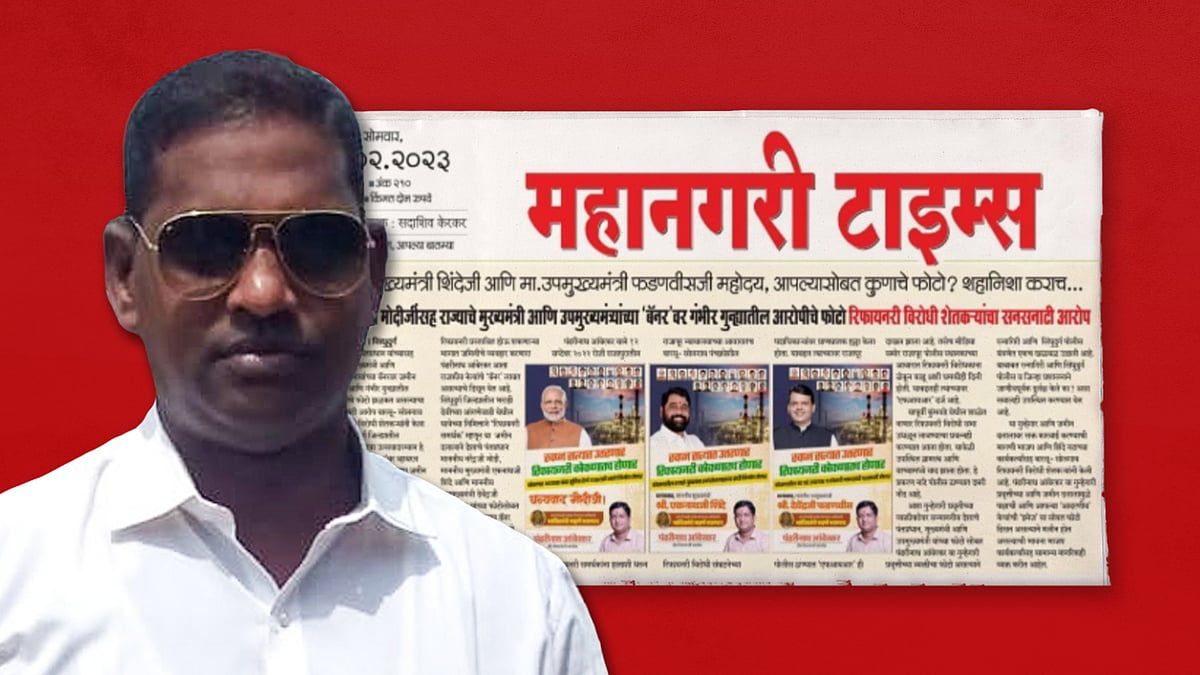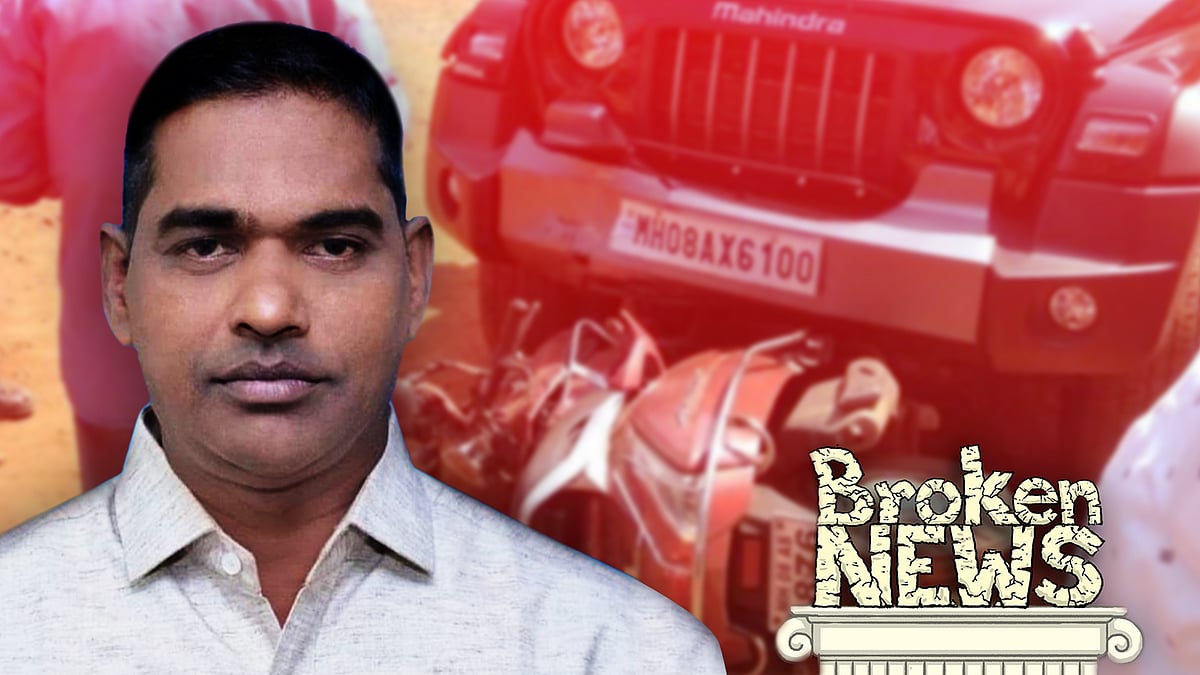Why a group of journalists in Maharashtra held a symbolic fast for three days
They have 15 demands, including medical benefits and the inclusion of digital journalists as working journalists.
Yesterday, for the third day in a row, hundreds of journalists gathered in a football stadium in Maharashtra’s Nagpur to hold a protest. To coincide with the winter session of the Maharashtra assembly, they held a symbolic fast while wearing black ribbons and praising stalwarts who supported press freedom like Gandhi and Ambedkar.
Organised by Voice of Media, a pan-India body working for the welfare of journalists, the protesters had a list of 15 demands from the state government. These include counting digital journalists as working journalists, implementing a law to prevent violence against journalists, and creating provisions for employment opportunities for their children.
“Journalists are not secure in their provisions,” said Sandeep Kale, cofounder and president of Voice of Media which has over 37,000 members. “They listen to everyone’s sorrows and challenges but their conditions are such that they don’t even have job security. There always looms an uncertainty of losing your job or having your newspaper or TV channel bought. Salaries are not adjusted for inflation.”
Kale said the idea to form Voice of Media came two years ago, when he met a journalist who didn’t even know if he could afford a meal the next day.
“After this incident, I realised this was the case with many journalists. I went to every district in Maharashtra, met journalists, editors and media house owners, and suggested that we do something or journalism may soon meet its end,” he said. “Twenty of us came together and started this.”
Maharashtra is one of the only states in India that has a law to protect journalists. The Maharashtra Media Persons and Media Institutions (Prevention of Violence and damage or Loss to Property) Act, 2017 deems acts of violence against journalists in the state as non-bailable, cognisable offences. But several journalists told Newslaundry the act merely exists on paper and makes little difference to them on the ground.
“If an act has been made, it should be implemented as well,” said Nana Dorakar, a journalist from Maharashtra’s Nandurbar district who was at the Nagpur protest. “Look at what happened to Sandeep Mahajan, who was attacked by an MLA in Jalgaon. The MLA proudly admitted on camera to doing so as well.” Dorakar travelled to Nagpur by train to attend the three-day protest.
On the demand for digital journalists to be included as working journalists, Kishore Vom from Wardha, who runs a YouTube portal called RNN News, said, “We are not even considered journalists. We don’t get accreditation or passes for important events that have to be covered.”
He continued: “During Covid, there were layoffs and salary cuts after which many senior journalists started their own channels. We don’t have the benefits we used to have in the traditional media, though digital media is sometimes viewed even more than TV channels. We bring the news straight from the ground. It was important for us to shift to digital media for job security.”
The journalists’ other demands are a quota in schools and colleges for admission for their children; enforcing self-regulation of the new IT Rules; amending the law on registration of digital portals at state and district levels; registering publications without delay; justice in Sandeep Mahajan’s case; free medical treatment for journalists who’ve worked for a decade or longer; a circular with guidelines on journalist salaries; creating a housing society for journalists; government concessions; ads given to journalists equally; and a scheme to honour journalists annually.
“It is difficult for journalists to get loans easily,” said Sunil Kuhikar, a journalist from Nagpur. “Many journalists lost their jobs during Covid and are yet to recover from the losses. We want a statutory board that will make it easier for them.”
The protest has now ended and journalists have returned to their routines back home. But, as they told Newslaundry, their fight for a better future will continue.
If you liked this piece, let our reporters tell you why you should subscribe to Newslaundry.
 ‘The only journalist who cared’: Memory of scribe killed after refinery report lingers on in Maharashtra
‘The only journalist who cared’: Memory of scribe killed after refinery report lingers on in Maharashtra Why Maharashtra journalist’s murder reflects poorly on status of press freedom in India
Why Maharashtra journalist’s murder reflects poorly on status of press freedom in India